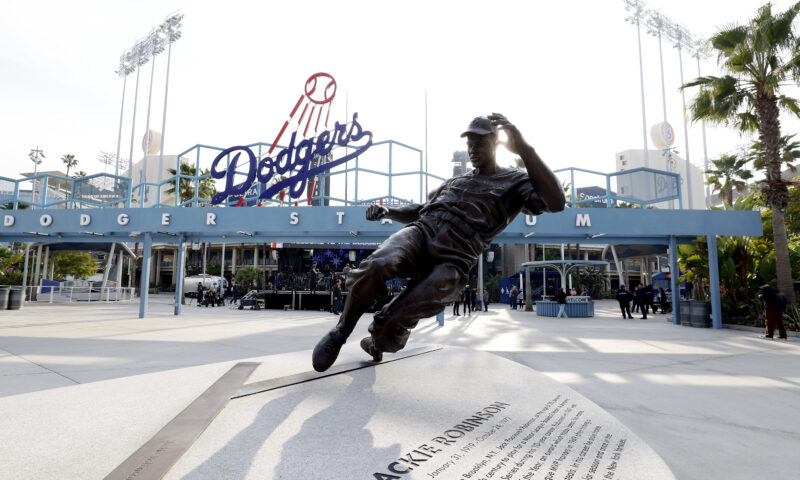
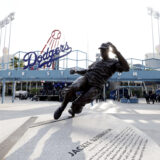
The World Series champions, whose franchise integrated baseball, have angered some by accepting Trump’s invitation to the White House.
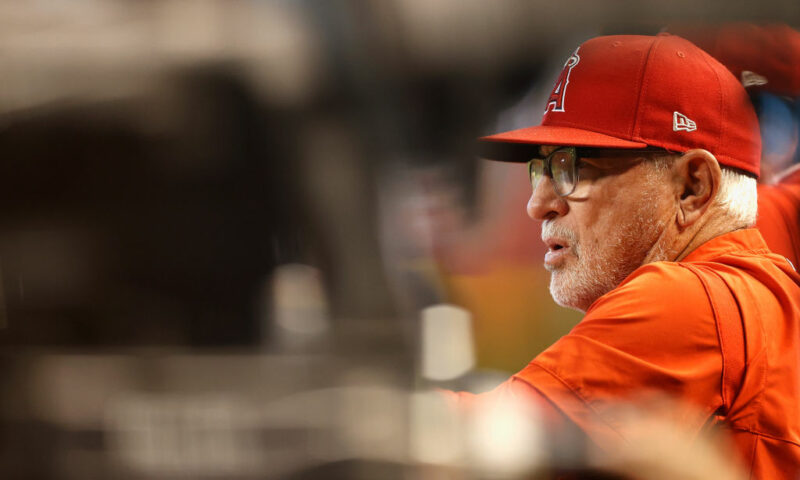
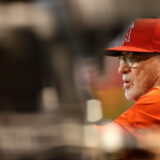
World Series-winning baseball manager Joe Maddon talks about the need for more Black players, how big data has undermined baseball and why rebellion can lead to an authentic life.
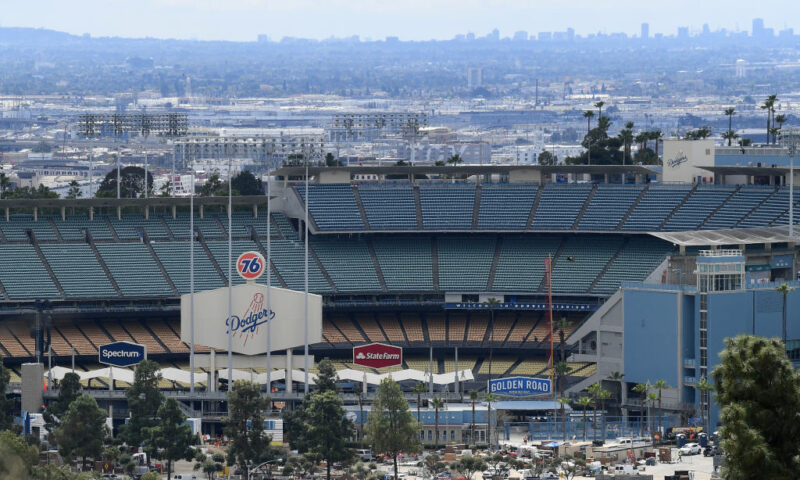

When it comes to wages, baseball’s billionaires give stadium workers peanuts.
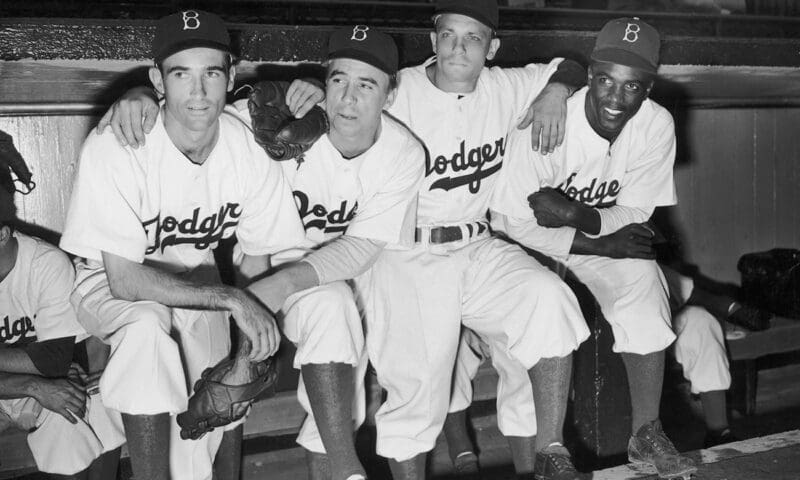
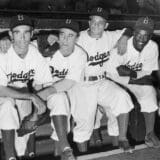
More than a ground-breaking Dodger star, Jackie Robinson had a radical side, too.
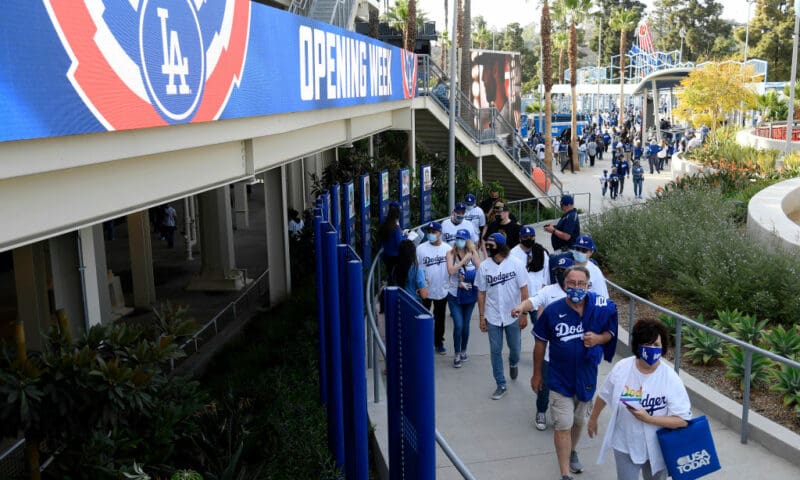
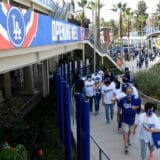
Thirteen months after the coronavirus ground everything to a halt, California’s ballparks are navigating their way through reopenings.
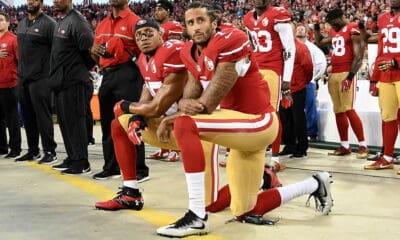
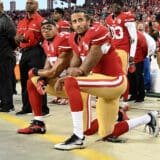
Colin Kaepernick’s lonely protest in 2016 was just the first of many expressions of outrage.


Organization eschews on-field diversity even as Clayton Kershaw and teammates commit to racial justice.
Co-published by Newsweek
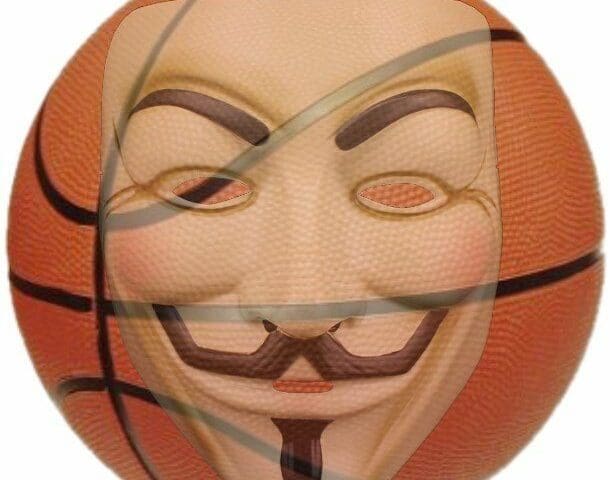
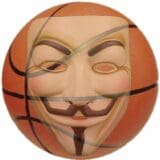
Last week Chicago Bulls basketball star Derrick Rose wore a T-shirt in warm-ups that read “I Can’t Breathe,” protesting the non-indictment of a New York police officer whose chokehold killed Eric Garner. Cleveland Cavaliers superstar LeBron James wore a similar shirt the next night, telling a reporter who asked him after the game if his action was a “Cavaliers thing,” that no, it was a “worldly thing.”
A few days before these pro basketball players’ protests, five members of the St. Louis Rams football team ran out of the team dressing room before kick-off with their hands raised above their heads, a reference to the “don’t shoot” gesture that protesters have been using after the shooting of teenager Michael Brown in Ferguson, Missouri.
Predictable outrage ensued. The St. Louis Police Officers Association issued a statement saying the organization was “…profoundly disappointed” with the five players,
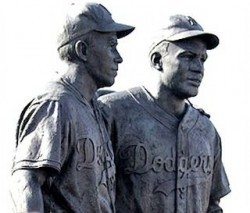
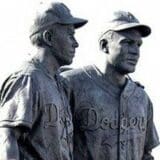
(Dave Zirin writes about sports and society for the Nation, where this post first appeared. Republished with permission.)
Sometimes it’s all just too damn much. First came word this week that the famed Coney Island statue of Jackie Robinson, standing alongside Pee Wee Reese as sporting symbols of racial progress, had been defaced, with “die n***ers,” “f*ck Jackie Robinson and all n***ers,” and “Heil Hitler” scrawled across it. It’s quite the capstone to a summer that started with the sweetly hopeful biopic, 42, about Robinson’s early career and post-racial promise. There is no doubt if Robinson still walked among us, he wouldn’t be shocked at the vandalism of his statue. He’d grit his teeth and set to cleaning it with his bare hands as a vein throbbed dangerously on his temple. This is the world—and the country—Jackie Robinson knew all too well.
» Read more about: Jackie Robinson, Trayvon Martin and the Ebony Boycott »
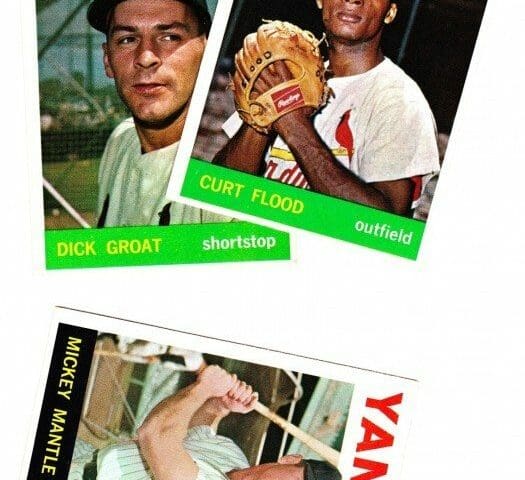
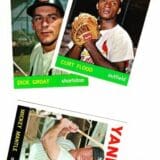
The upcoming Major League Baseball All-Star Game will be the first hosted by the New York Mets since 1964, reminding me that following the All-Star break that same year, my St. Louis Cardinals staged one of the most thrilling comeback stories in baseball history.
I say “my Cardinals” because during my adolescence in Lawn Guyland, my friends and I lived and died by the clubs we followed. For us, the glories and the tragedies of the Cards, Don’s Dodgers, Josh’s Braves, Peter’s Giants and Lenny’s Yankees were as intense as the ups and downs of our relationships with our girlfriends. If we’d had girlfriends, that is.
In September of 1964, with just 12 games to go, we (always “we,” never “they”) were 6.5 games behind the Philadelphia Phillies, whose notorious Philly Phold — the team lost 10 in a row — led to an extraordinary final two days with four teams still in the race.
» Read more about: House of Cards: A Pennant Race Remembered »

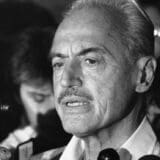
While he was alive, the baseball establishment five times rejected Marvin Miller, who freed players from indentured servitude, from its Hall of Fame. The Major League Baseball Players Association, which Miller headed from 1966 to 1983, sat on its hands, failing to raise a stink about this outrageous miscarriage of justice.
Miller, who died on Tuesday at 95, was never bitter about his exclusion from the Cooperstown shrine. As a staunch unionist, he knew which side he was on and understood that the baseball owners and executives who control the Hall of Fame would rig the rules to keep him out. The baseball moguls have always viewed their teams as personal fiefdoms and are among the most ferociously anti-union crowd around.
But what’s appalling is the timidity of the Players Association to mount a campaign on Miller’s behalf. Over the years, many Hall of Fame players—including Tom Seaver,
» Read more about: Marvin Miller: Locked Out of Baseball's Hall of Fame »